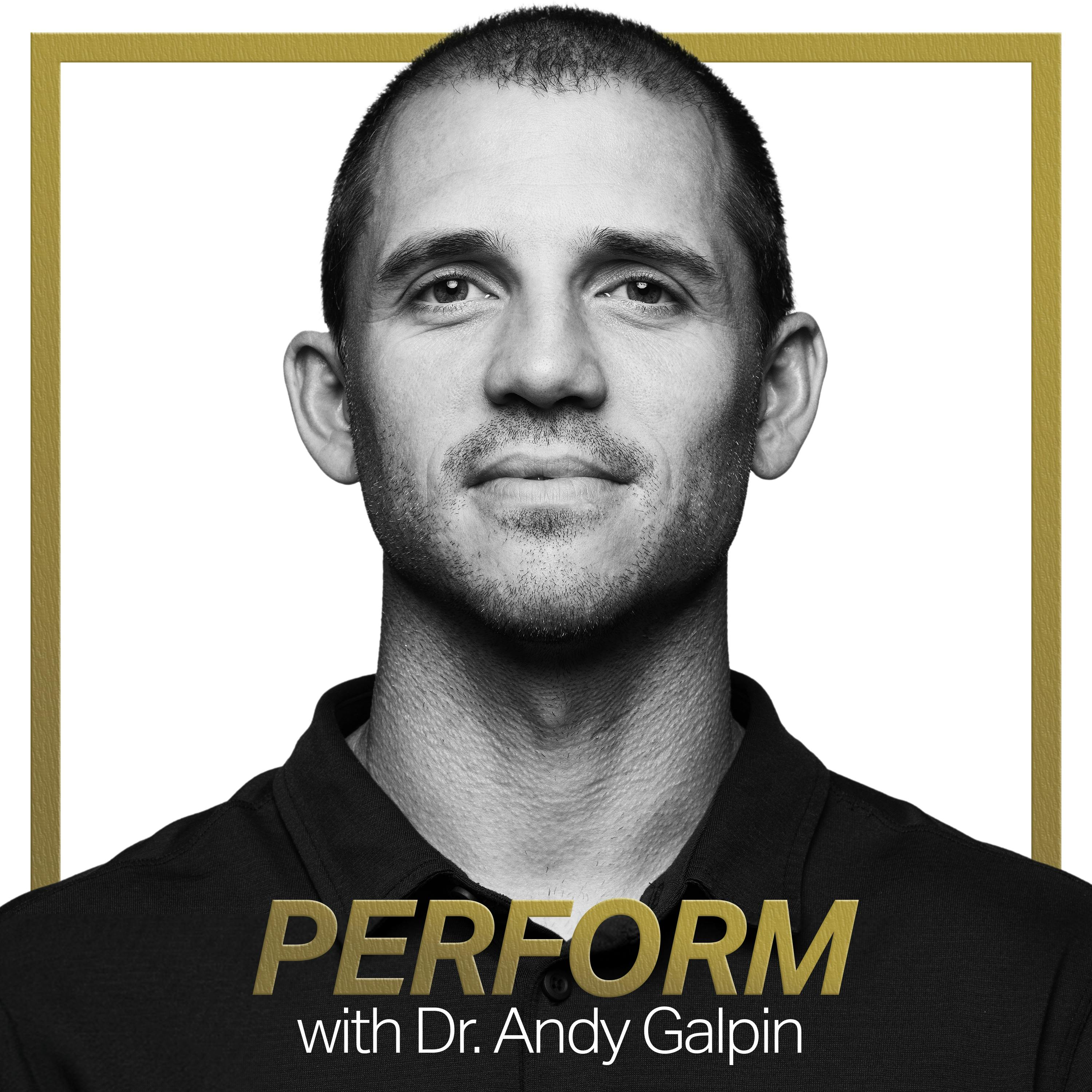
July 31, 2024 • 1hr 43min
Genetic Testing for Sports Performance
Perform with Dr. Andy Galpin

Key Takeaways
- Sports genomics is the study of how genetics influences athletic performance and traits
- All humans have the same ~20,000 genes, but small variations (polymorphisms) in genes lead to differences between individuals
- Most complex athletic traits are polygenic, meaning they are influenced by many genes, not just one or a few
- Current genetic tests for athletic performance typically only look at a small number of gene variants and have limited predictive power
- Genetic testing for talent identification in youth athletes is not recommended due to ethical concerns and limited scientific evidence
- The impact of lifestyle factors like training and nutrition on athletic performance is generally much larger than genetic factors
- Gene doping and editing for performance enhancement is banned in sports, dangerous, and not recommended
- The field of sports genomics is rapidly advancing but still has major limitations in practical applications for athletes and coaches
Introduction
In this episode, Dr. Andy Galpin provides a comprehensive overview of the current state of genetic testing for sports and athletic performance. He explains the basic science of sports genomics, describes the history and development of the field, and analyzes the current capabilities and limitations of genetic testing for athletes. Dr. Galpin also discusses ethical issues around genetic testing, especially for youth athletes, and explores potential future developments in sports genomics.
Topics Discussed
Basic Concepts in Sports Genomics (14:33)
Dr. Galpin begins by explaining some fundamental concepts in genetics and sports genomics:
- The genome is the entire collection of genetic material inherited from parents
- Genes are specific portions of DNA that encode for proteins
- All humans have the same ~20,000 genes, but small variations in genes lead to differences between individuals
- These variations are called polymorphisms if common (>1% of population) or mutations if rare (<1%)
- Single nucleotide polymorphisms (SNPs) are variations in a single DNA base pair
He emphasizes that it's these small genetic variations, not the presence/absence of entire genes, that influence athletic traits.
Examples of Performance-Related Genes (25:12)
Dr. Galpin discusses some well-studied examples of genes related to athletic performance:
- Myostatin gene: Rare mutations can lead to increased muscle mass
- ACTN3 gene: Influences fast-twitch muscle fiber production
- ACE gene: Associated with endurance performance
He notes that even for these well-studied genes, the performance impact is usually small and varies across populations.
History of Sports Genomics (38:10)
Dr. Galpin provides a brief history of the field:
- 1960s-70s: First studies on blood types in Olympic athletes
- 1990: Human Genome Project begins
- 1992: HERITAGE Family Study on genetics of exercise response starts
- Early 2000s: First "athlete genes" like ACTN3 discovered
- 2003: Human Genome Project completed
- 2017: UK Biobank data reveals most traits are highly polygenic
He explains how early optimism about finding single genes for athletic traits has given way to the realization that most traits are influenced by hundreds or thousands of genes.
Polygenic Traits and Polygenic Risk Scores (45:41)
Dr. Galpin discusses how our understanding of genetics and athletic performance has evolved:
- Most complex traits like VO2 max or muscle strength are polygenic, influenced by many genes
- Scientists now use polygenic risk scores that look at many gene variants to predict traits
- Even with many variants, genetic tests still have limited predictive power for most traits
He uses the analogy of flipping coins to explain polygenic scores - having more "favorable" gene variants is like getting more heads when flipping many coins.
Interpreting Genetic Test Results (55:34)
Dr. Galpin outlines 5 key questions to consider when interpreting genetic test results for athletic traits:
- What gene(s) influence the trait?
- How much does each gene contribute?
- How likely is a physiologically relevant change?
- What's the magnitude of the effect?
- Has it been validated in your genetic background?
He emphasizes that for most traits, individual genes have very small effects and may not be meaningful for individuals.
Genetic Contribution to Athletic Traits (1:18:19)
Dr. Galpin discusses research on how much genetics contributes to various athletic traits:
- Height is 70-90% heritable but influenced by 25,000+ gene variants
- For most performance traits, hundreds of gene variants explain only a small percentage of variation between individuals
- Lifestyle factors like training usually have a much larger impact than genetics
He notes that even traits that are highly heritable, like height, are influenced by so many genes that current tests have limited predictive power.
Limitations of Current Genetic Testing (1:21:37)
Dr. Galpin outlines several key limitations of current direct-to-consumer genetic tests for athletic performance:
- Most tests only look at a small number of gene variants
- The effect size of most gene variants is very small
- There's often a low likelihood of the genetic variant actually causing a meaningful change
- Most genetic databases are based on Caucasian populations and may not apply to other ethnic groups
He emphasizes that these limitations mean current tests have little practical value for most athletes or coaches.
Gene Doping and Gene Editing (1:28:46)
Dr. Galpin briefly discusses more extreme genetic interventions:
- Gene doping: Using drugs/therapies to alter gene expression
- Gene editing: Directly changing an individual's genome
He notes these are banned in sports, potentially very dangerous, and not recommended. There are no documented cases of successful gene editing in adult humans for performance enhancement.
Personalized Training and Nutrition (1:31:56)
Dr. Galpin discusses the potential for using genetic information to personalize training or nutrition:
- Current evidence for genetics-based training programs is limited
- Some potential for nutrition recommendations (e.g. caffeine metabolism) but more research needed
- Overall, not enough evidence yet to strongly recommend personalization based solely on genetics
Future of Sports Genomics and Ethics (1:34:29)
Dr. Galpin concludes by discussing the future outlook and ethical considerations:
- Large ongoing studies will improve our understanding of genetics and performance
- Ethical concerns about genetic testing for talent identification, especially in youth
- Potential negative psychological impacts of genetic test results
- Need to consider both risks and benefits of genetic testing in sports
Conclusion
Dr. Galpin summarizes the current state of sports genomics:
- Most athletic traits are influenced by hundreds or thousands of genes
- Current genetic tests have limited predictive power for performance
- Lifestyle factors like training usually have a much larger impact than genetics
- Not recommended to use genetic testing alone for major training or nutrition decisions
- The field is advancing rapidly but still has major limitations
He recommends focusing first on how an athlete actually feels and performs, then considering blood/protein markers if needed, before potentially using genetic information as a final layer of insight. Overall, while sports genomics is an exciting and rapidly advancing field, its current practical applications for athletes and coaches remain limited.



